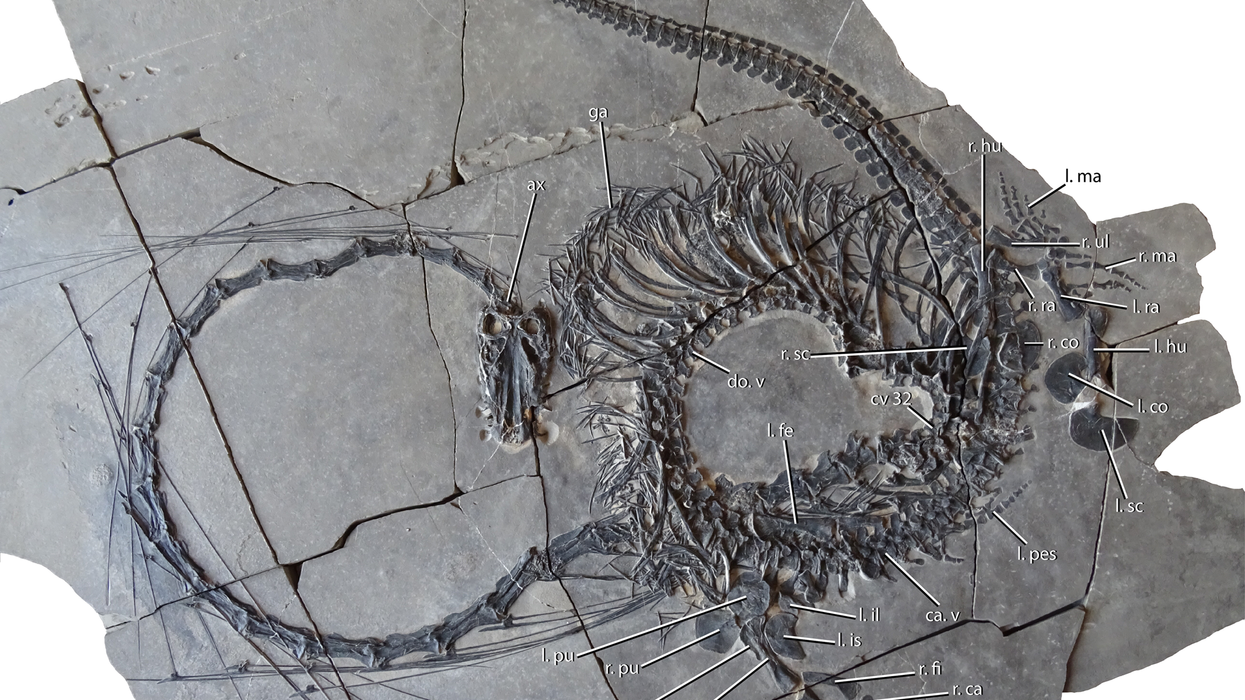Science & Tech
Catherine Shuttleworth
Feb 25, 2024

Spiekman, et al. (2024) / Cambridge University Press
The discovery of a 240-million-year-old fossil with an uncanny resemblance to a mythical Chinese dragon has gained widespread attention.
The fossil has been pieced together by palaeontologists for the first time, and instead of a dragon it is actually the remains of a marine reptile. Known as Dinocephalosaurus orientalis, the 5-metre (16-foot) long creature was a native of southwestern China during the Triassic period.
The appearance of the species was uncertain, despite it being initially identified in 2003. However, as more complete remains have been discovered, scientists have now been able to depict the creature in its entirety for the first time.
The finished reconstruction consists of seven specimens, all of which were discovered in the Guizhou Province, a part of south China that's no stranger to groundbreaking paleontological studies.
The findings were published in the study Earth and Environmental Science: Transactions of the Royal Society of Edinburgh.
The significantly long neck of the creature is what gives the species its dragon-like appearance.
“This discovery allows us to see this remarkable long-necked animal in full for the very first time. It is yet one more example of the weird and wonderful world of the Triassic that continues to baffle palaeontologists,” Dr Nick Fraser, Keeper of Natural Sciences at National Museums Scotland, said in a statement.
He continued to explain: “We are certain that it will capture imaginations across the globe due to its striking appearance, reminiscent of the long and snake-like, mythical Chinese Dragon."
The research project involved scientists across the globe, including those from Germany, Scotland, the US, and China. The fossils were studied for over a decade at the Institute of Vertebrate Palaeontology and Paleoanthropology in Beijing.
“This remarkable marine reptile is another example of the stunning fossils that continue to be discovered in China”, added Professor Robert Ellam, Editor-in-Chief of Transactions and Fellow of the Royal Society of Edinburgh.
Sign upto our free Indy100 weekly newsletter
Have your say in our news democracy. Click the upvote icon at the top of the page to help raise this article through the indy100 rankings.
How to join the indy100's free WhatsApp channel
Top 100
The Conversation (0)













